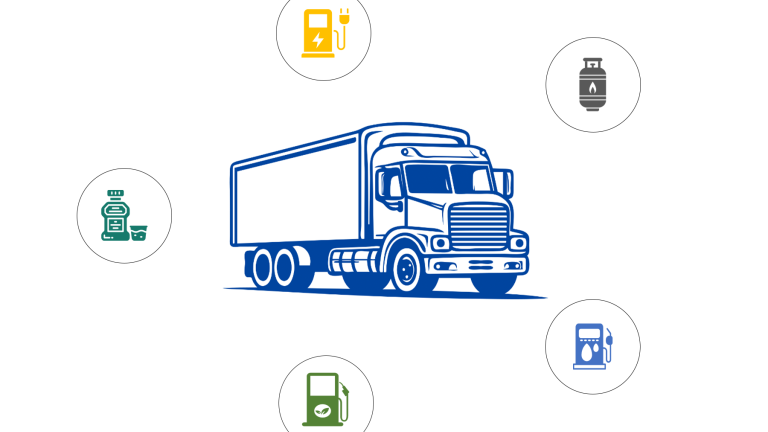
With the growing urgency to decarbonize, the trucking industry is on the cusp of a dramatic transition to low-carbon alternative fuels and powertrains. During a recent panel discussion hosted by the MIT Climate & Sustainability Consortium (MCSC), experts from across academia and MCSC member companies came together to discuss opportunities and barriers that trucking fleets face as they navigate this shift. A new white paper explores some of the key points and outcomes from this conversation, as well as from other research and work being done in the MCSC’s Tough Transportation Modes focus area. The paper’s authors – MCSC Impact Fellow Danika MacDonell and MIT graduate students Sayandeep Biswas and Kariana Moreno Sader – identify the near-term priorities to support industry stakeholders and successfully navigate a “valley of death” period, where up-front costs are high and availability of public infrastructure limited.






